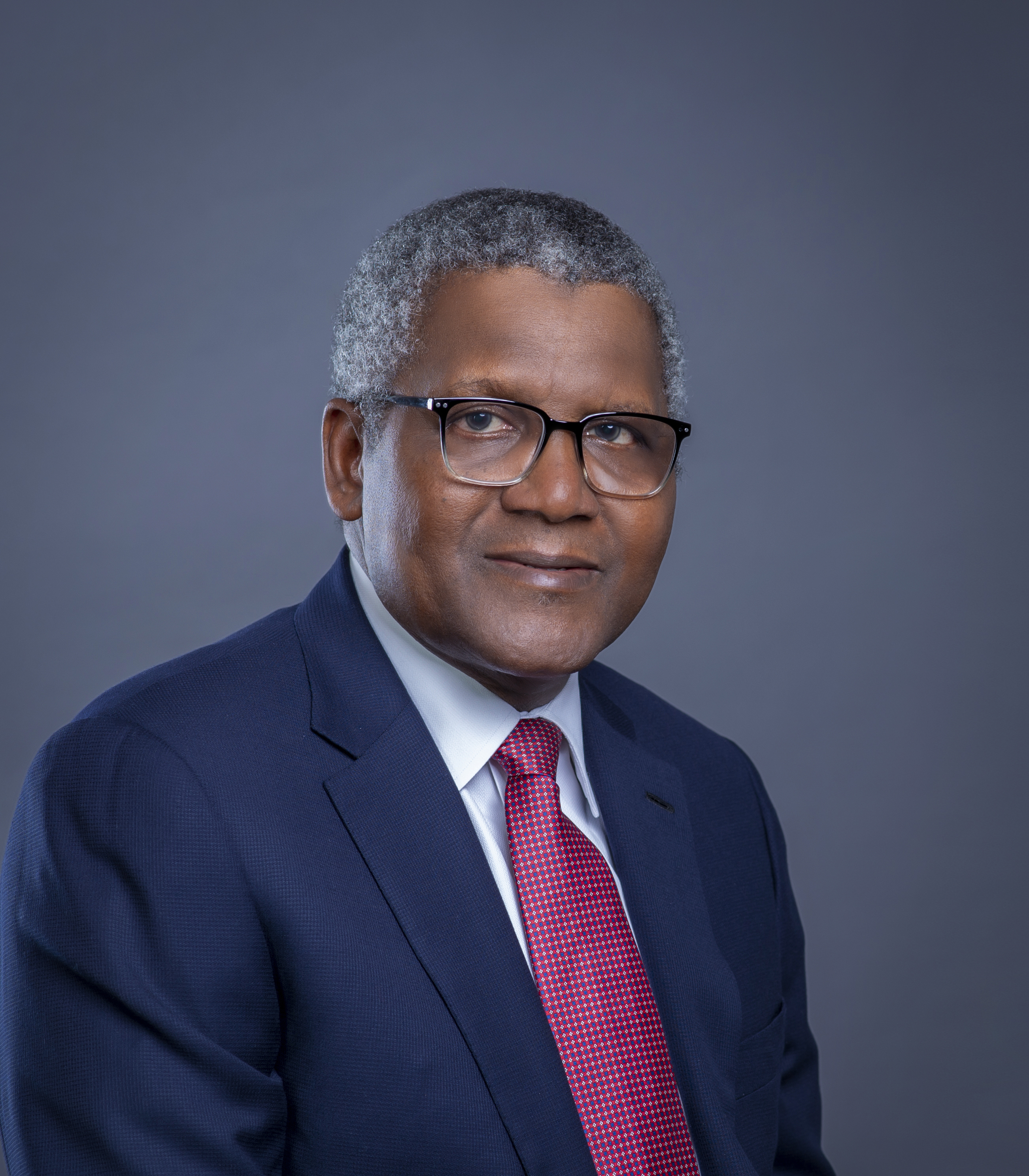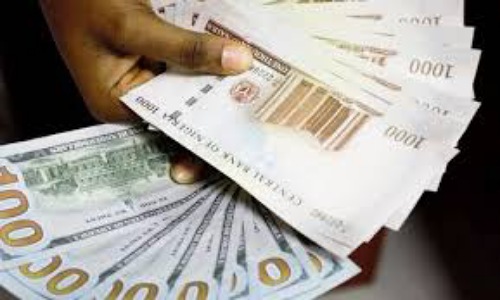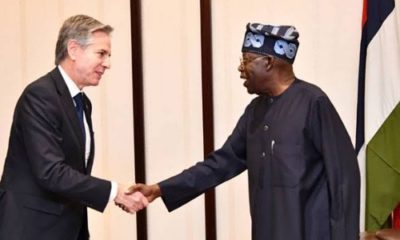Business
Cash Crunch Slows Nigeria’s Q1 2023 Growth

According to the National Bureau of Statistics, Nigeria experienced a slowdown in economic growth during the first quarter of 2023.
The Gross Domestic Product (GDP) recorded a year-on-year growth of 2.31 percent within the quarter.
This information was stated in the “Nigerian Gross Domestic Product Report Q1 2023″ released on Wednesday by the statistics bureau.
The report highlighted that this growth rate declined compared to the first quarter of 2022, which saw a growth rate of 3.11 percent, as well as the fourth quarter of 2022, which had a growth rate of 3.52 percent.
The NBS attributed this reduction in growth to the adverse effects of the cash crunch experienced during the quarter.
According to the report, the performance of the GDP in the first quarter of 2023 was driven mainly by the services sector, which recorded a growth of 4.35 per cent and contributed 57.29 per cent to the aggregate GDP.
The bureau said the agriculture sector grew by -0.90 per cent, lower than the growth of 3.16 per cent recorded in the first quarter of 2022.
The NBS said although the growth of the industry sector improved to 0.31 per cent relative to -6.81 per cent recorded in the first quarter of 2022, agriculture and industry sectors contributed less to the aggregate GDP in the quarter under review compared to the first quarter of 2022.
According to the report, in the quarter under review, aggregate GDP stood at N51.24 trillion in nominal terms.
This performance is higher when compared to the first quarter of 2022 which recorded aggregate GDP of N45.3 trillion, indicating a year-on-year nominal growth of 13.07 per cent.
According to the National Bureau of Statistics, Nigeria recorded an average daily oil production of 1.51 million barrels per day (mbpd) during the first quarter of 2023.
This figure is higher compared to the daily average production of 1.49 mbpd in the same quarter of 2022, and it exceeds the production volume of 1.34 mbpd in the fourth quarter of 2022 by 0.17 mbpd.
It reported that the real growth of Nigeria’s oil sector in the first quarter of 2023 was -4.21 percent year-on-year. This indicates an increase of 21.83 percentage points compared to the growth rate recorded in the corresponding quarter of 2022, which was -26.04 percent.
Furthermore, the NBS stated that the growth rate in the oil sector increased by 9.18 percentage points when compared to the previous quarter, Q4 2022, which had a growth rate of -13.38 percent.
The report said “On a quarter-on-quarter basis, the oil sector recorded a growth rate of 20.68 per cent in Q1 2023.
“The oil sector contributed 6.21 per cent to the total real GDP in Q1 2023, down from the figure recorded in the corresponding period of 2022 and up from the preceding quarter, where it contributed 6.63 per cent and 4.34 per cent respectively.”
According to the National Bureau of Statistics, the non-oil sector experienced a real growth rate of 2.77 percent during the first quarter of 2023. However, this rate was lower by 3.30 percentage points compared to the growth rate recorded in the same quarter of 2022.
Additionally, it was 1.67 percentage points lower than the growth rate in the fourth quarter of 2022.
“This sector was driven in the first quarter of 2023 mainly by information and communication (telecommunication), financial and insurance (financial institutions), trade, manufacturing (food, beverage and tobacco), construction, and transportation and storage (road transport), accounting for positive GDP growth.
“In real terms, the non-oil sector contributed 93.79 per cent to the nation’s GDP in the first quarter of 2023, higher than the share recorded in the first quarter of 2022 which was 93.37 per cent and lower than the fourth quarter of 2022 recorded as 95.66 per cent,” it said.
Business
Chevron Staff On Place Of Public Relations In Crisis Management

Effective Public Relations strategies have been identified as essential for maintaining stakeholder trust, managing crises, and ensuring long-term success of corporate organizations.
Manager Communications, Chevron Nigeria and Mid-Africa Business Unit, Victor Anyaegbudike, gave this indication while delivering a paper titled: “Corporate Organizations, Public Relations, and Crisis Management” as a guest lecturer during the 2024 Jackson Annual Lecture (JAL) and International Conference of the Department of Mass Communication, University of Nigeria, Nsukka (UNN) held from April 17-19, 2024.
Anyaegbudike, an alumnus of the University, noted that Public Relations and crisis management are integral components of a comprehensive reputation management strategy for corporate organizations, adding that while Public Relations focuses on proactively managing public perception and building strong foundations, crisis communication steps in during times of crisis to address and mitigate reputational threats.
“In today’s interconnected world, where information travels at the speed of light, Public Relations plays a pivotal role in shaping the image and reputation of corporate organizations,” he stated.
He explained that crisis management is the process by which an organization deals with a disruptive and unexpected event that threatens to harm the organization or its stakeholders and outlined some strategies for effective Public Relations crisis management which include ‘Preparedness, Transparency, Consistent Messaging, Empathy, Monitoring and Adaptation’.
According to him, “effective crisis management involves a delicate balance between transparency, empathy, and strategic communication. Organizations that handle crises well can emerge stronger and maintain stakeholder trust.”
While identifying and highlighting some theoretical and practical paradigms that constitute successes and failures of Public Relations efforts in crisis, Victor emphasized the paramount role of leadership in crisis management and stated that effective leadership during a crisis fosters resilience, trust, and successful resolution.
He mentioned some ways leadership contributes to effective crisis management as “Decision-Making, Communication, Strategic Vision, Empathy and Support, Adaptability, Transparency and Accountability, Team Coordination, Learning and Improvement.”
The lecture was well received by a large audience which included members of the academia, representatives of corporate organizations, government officials, traditional rulers, and students.
Anyaegbudike was also presented with an Excellence Award by the University during the event.
The JAL was established in honour of late John Payne Jackson, a courageous newspaper editor who founded the “Lagos weekly Record newspaper” in 1891 and used his paper to attack the exploitative and obnoxious policies of the colonial government.
Business
Again, Dangote Crashes Diesel, Aviation Fuel Prices To N940, N980 Respectively

It appears the Nigerian economy would not have to wait for long to reap the benefits of local production of refined petroleum products, with fall in prices witnessed thrice in less than four weeks.
Biztellers reports that the Dangote Petroleum Refinery has again reduced the prices of both diesel and aviation fuel to N940, N980 per litre respectively.
This is coming in the wake of its widely celebrated price reduction to N1,000 barely two weeks ago.
The company disclosed in a statement on Tuesday that the price change of N940 applies to customers buying five million litres and above from the refinery, while the price of N970 is for customers buying one million litres and above.
On the new development, the Head of Communication, Dangote Group, Anthony Chiejina, explained that the new price is in consonance with the company’s commitment to cushion the effect of economic hardship in Nigeria.
He said, “I can confirm to you that Dangote Petroleum Refinery has entered a strategic partnership with MRS Oil and Gas stations, to ensure that consumers get to buy fuel at affordable price, in all their stations be it Lagos or Maiduguri. You can buy as low as 1 litre of diesel at N1,050 and aviation fuel at N980 at all major airports where MRS operates.”
This strategic partnership would be extended to other major oil marketers, Chiejine asserted.
“The essence of this is to ensure that retail buyers do not buy at exorbitant prices.
“The Dangote Group is committed to ensuring that Nigerians have a better welfare and as such, we are happy to announce these new prices and hope that they would go a long way to cushion the effect of economic challenges in the country,” he said.
Recall that the management of the Dangote Petroleum Refinery announced a further reduction of the price of diesel from 1200 to 1,000 Naira per litre barely two weeks ago.
Biztellers reports that this marks the third major reduction in diesel price in less than three weeks when the product sold at N1,700 to N1,200 and also a further reduction to N1,000 and now N940 for diesel and N980 for aviation fuel per litre.
President Bola Ahmed Tinubu had commended Dangote for the initial price reduction, describing it as an “enterprising feat.”
Reacting to the latest development, the Director General of the Manufacturers Association of Nigeria (MAN), Ajayi Kadiri, said that “The decision of Dangote Refinery to first crash the price from about N1,750/litre to N1,200/litre, N1,000/litre and now N940 is an eloquent demonstration of the capacity of local industries to positively impact the fortunes of the national economy.”
He added that “The trickledown effect of this singular intervention promises to change the dynamics in the energy cost equation of the country, in the midst of inadequate and rising cost of electricity.
“The reduction will have far-reaching effects in critical sectors like industrial operations, transportation, logistics, and agriculture, contributing to easing the high inflation rate in the country; a lot of companies will be back in operation.”
Business
Naira Soars, Attains 5-Month Peak Against Dollar

The Naira surged against the US Dollar, surpassing key resistance levels to trade below N1,000 in certain segments of the black market by late Sunday.
This uptrend corresponds with earlier forecasts from Goldman Sachs and occurs amidst increased global geopolitical tensions.
Economists from the American investment bank, Goldman Sachs observed that “The Naira’s current bullish momentum is projected to persist, potentially pushing the exchange rate below N1000 per US dollar in the upcoming months.”
The recent appreciation in the Naira follows a period of volatility marked by significant devaluations since last June. Measures undertaken by Nigerian financial authorities, such as successive interest rate hikes currently at 24.75% and strategic interventions in the foreign exchange market, have notably aided in stabilizing the currency.
A spokesperson from the Central Bank of Nigeria (CBN) emphasized the pivotal role of the CBN’s assertive monetary policy adjustments and the implementation of new market strategies in facilitating the Naira’s recovery from previous setbacks during the latest Monetary Policy Committee (MPC) meeting.
The geopolitical landscape has played a role in market dynamics as well.
Following the recent Iranian strike on Israel, there was an initial flight to safety, which bolstered the US dollar against other currencies.
However, the dollar later stabilized as Israeli ministers indicated no immediate plans for retaliation, easing some market apprehensions.
In March, Goldman Sachs revised its forecast, anticipating the Naira to strengthen to N1200 per dollar by 2024. The firm attributed this optimistic outlook to increased capital inflows and a series of policy initiatives aimed at stabilizing the foreign exchange market.
Finance Minister Wale Edun unveiled plans to boost US dollar inflows, including the sale of foreign currency bonds in the second quarter.
This initiative is part of broader efforts to attract overseas capital through high-yield short-term debt products.
Despite the Naira’s rally and efforts to increase economic inflows, Nigeria’s gross foreign reserves have declined, even amidst rising global commodity prices, especially crude oil.
Nigerian oil grades are presently trading at a premium over the ICE Brent benchmark, which might help counterbalance the adverse fiscal effects of decreased production volumes.
An industry analyst noted, “The ongoing geopolitical unrest in the Middle East and the anticipation of further instability have had significant ripple effects on global markets, impacting commodity prices and currency valuations alike.”














